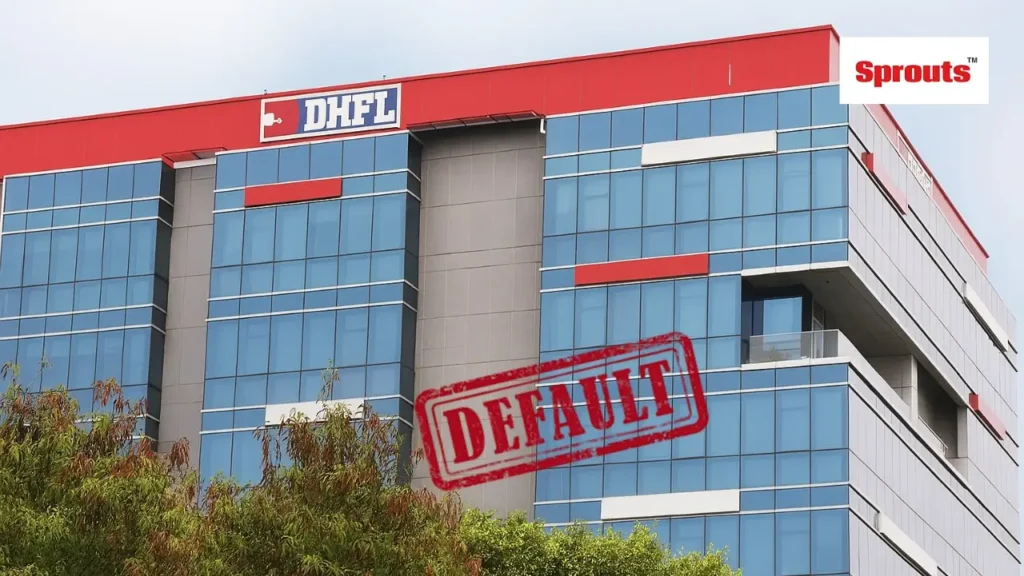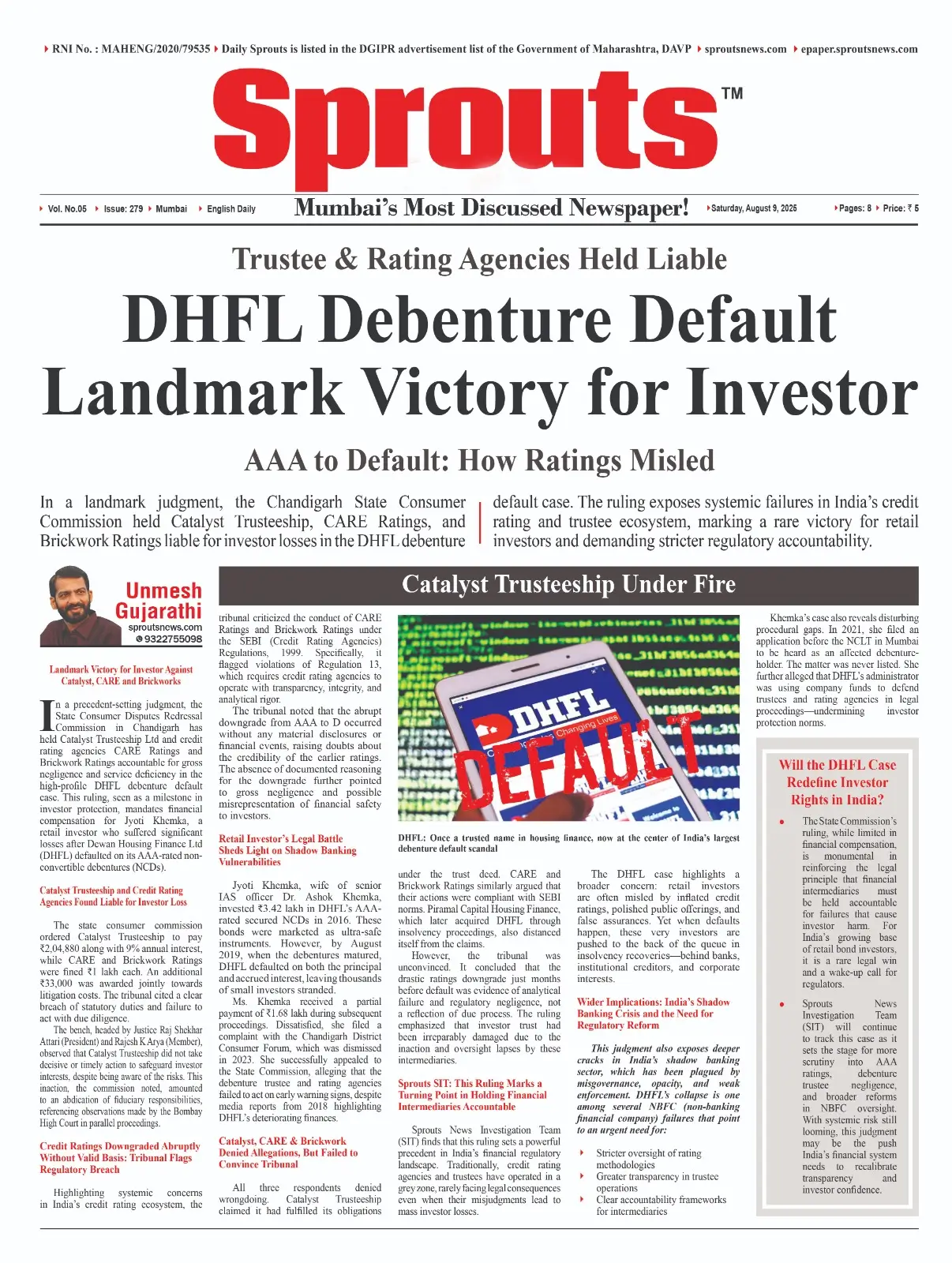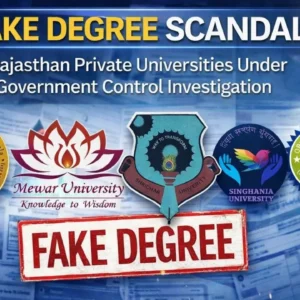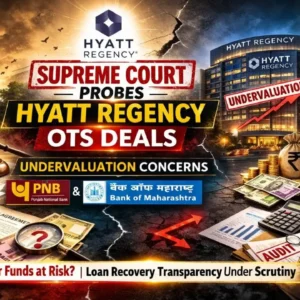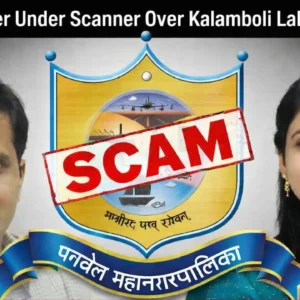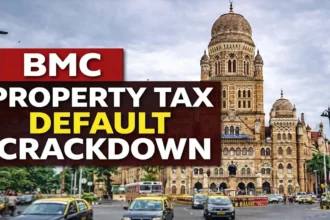DHFL Debenture Default: Landmark Victory for Investor
• Trustee & Rating Agencies Held Liable
• AAA to Default: How Ratings Misled
• Catalyst Trusteeship Under Fire
Unmesh Gujarathi
Sprouts News Exclusive
Contact: +91 9322755098
Sprouts News Exclusive
Contact: +91 9322755098
In a landmark judgment, the Chandigarh State Consumer Commission held Catalyst Trusteeship, CARE Ratings, and Brickwork Ratings liable for investor losses in the DHFL debenture default case. The ruling exposes systemic failures in India’s credit rating and trustee ecosystem, marking a rare victory for retail investors and demanding stricter regulatory accountability.
Landmark Victory for Investor Against Catalyst, CARE and Brickworks
In a precedent-setting judgment, the State Consumer Disputes Redressal Commission in Chandigarh has held Catalyst Trusteeship Ltd and credit rating agencies CARE Ratings and Brickwork Ratings accountable for gross negligence and service deficiency in the high-profile DHFL debenture default case. This ruling, seen as a milestone in investor protection, mandates financial compensation for Jyoti Khemka, a retail investor who suffered significant losses after Dewan Housing Finance Ltd (DHFL) defaulted on its AAA-rated non-convertible debentures (NCDs).
Click Here To Download the News Attachment
Contents
- DHFL Debenture Default: Landmark Victory for Investor
- • Trustee & Rating Agencies Held Liable
- • AAA to Default: How Ratings Misled
- • Catalyst Trusteeship Under Fire
- Landmark Victory for Investor Against Catalyst, CARE and Brickworks
- Catalyst Trusteeship and Credit Rating Agencies Found Liable for Investor Loss
- Credit Ratings Downgraded Abruptly Without Valid Basis: Tribunal Flags Regulatory Breach
- Retail Investor’s Legal Battle Sheds Light on Shadow Banking Vulnerabilities
- Catalyst, CARE & Brickwork Denied Allegations, But Failed to Convince Tribunal
- Sprouts SIT: This Ruling Marks a Turning Point in Holding Financial Intermediaries Accountable
- Wider Implications: India’s Shadow Banking Crisis and the Need for Regulatory Reform
- Will the DHFL Case Redefine Investor Rights in India?
Catalyst Trusteeship and Credit Rating Agencies Found Liable for Investor Loss
The state consumer commission ordered Catalyst Trusteeship to pay ₹2,04,880 along with 9% annual interest, while CARE and Brickwork Ratings were fined ₹1 lakh each. An additional ₹33,000 was awarded jointly towards litigation costs. The tribunal cited a clear breach of statutory duties and failure to act with due diligence.
The bench, headed by Justice Raj Shekhar Attari (President) and Rajesh K Arya (Member), observed that Catalyst Trusteeship did not take decisive or timely action to safeguard investor interests, despite being aware of the risks. This inaction, the commission noted, amounted to an abdication of fiduciary responsibilities, referencing observations made by the Bombay High Court in parallel proceedings.
Credit Ratings Downgraded Abruptly Without Valid Basis: Tribunal Flags Regulatory Breach
Highlighting systemic concerns in India’s credit rating ecosystem, the tribunal criticized the conduct of CARE Ratings and Brickwork Ratings under the SEBI (Credit Rating Agencies) Regulations, 1999. Specifically, it flagged violations of Regulation 13, which requires credit rating agencies to operate with transparency, integrity, and analytical rigor.
The tribunal noted that the abrupt downgrade from AAA to D occurred without any material disclosures or financial events, raising doubts about the credibility of the earlier ratings. The absence of documented reasoning for the downgrade further pointed to gross negligence and possible misrepresentation of financial safety to investors.
Retail Investor’s Legal Battle Sheds Light on Shadow Banking Vulnerabilities
Jyoti Khemka, wife of senior IAS officer Dr. Ashok Khemka, invested ₹3.42 lakh in DHFL’s AAA-rated secured NCDs in 2016. These bonds were marketed as ultra-safe instruments. However, by August 2019, when the debentures matured, DHFL defaulted on both the principal and accrued interest, leaving thousands of small investors stranded.
Ms. Khemka received a partial payment of ₹1.68 lakh during subsequent proceedings. Dissatisfied, she filed a complaint with the Chandigarh District Consumer Forum, which was dismissed in 2023. She successfully appealed to the State Commission, alleging that the debenture trustee and rating agencies failed to act on early warning signs, despite media reports from 2018 highlighting DHFL’s deteriorating finances.
Catalyst, CARE & Brickwork Denied Allegations, But Failed to Convince Tribunal
All three respondents denied wrongdoing. Catalyst Trusteeship claimed it had fulfilled its obligations under the trust deed. CARE and Brickwork Ratings similarly argued that their actions were compliant with SEBI norms. Piramal Capital Housing Finance, which later acquired DHFL through insolvency proceedings, also distanced itself from the claims.
However, the tribunal was unconvinced. It concluded that the drastic ratings downgrade just months before default was evidence of analytical failure and regulatory negligence, not a reflection of due process. The ruling emphasized that investor trust had been irreparably damaged due to the inaction and oversight lapses by these intermediaries.
Sprouts SIT: This Ruling Marks a Turning Point in Holding Financial Intermediaries Accountable
Sprouts News Investigation Team (SIT) finds that this ruling sets a powerful precedent in India’s financial regulatory landscape. Traditionally, credit rating agencies and trustees have operated in a grey zone, rarely facing legal consequences even when their misjudgments lead to mass investor losses.
The DHFL case highlights a broader concern: retail investors are often misled by inflated credit ratings, polished public offerings, and false assurances. Yet when defaults happen, these very investors are pushed to the back of the queue in insolvency recoveries—behind banks, institutional creditors, and corporate interests.
Wider Implications: India’s Shadow Banking Crisis and the Need for Regulatory Reform
This judgment also exposes deeper cracks in India’s shadow banking sector, which has been plagued by misgovernance, opacity, and weak enforcement. DHFL’s collapse is one among several NBFC (non-banking financial company) failures that point to an urgent need for:
•Stricter oversight of rating methodologies
•Greater transparency in trustee operations
•Clear accountability frameworks for intermediaries
Khemka’s case also reveals disturbing procedural gaps. In 2021, she filed an application before the NCLT in Mumbai to be heard as an affected debenture-holder. The matter was never listed. She further alleged that DHFL’s administrator was using company funds to defend trustees and rating agencies in legal proceedings—undermining investor protection norms.
Also Read: Bank of Maharashtra Accused of Undervalued Sale, Plot Controversy.
Will the DHFL Case Redefine Investor Rights in India?
The State Commission’s ruling, while limited in financial compensation, is monumental in reinforcing the legal principle that financial intermediaries must be held accountable for failures that cause investor harm. For India’s growing base of retail bond investors, it is a rare legal win and a wake-up call for regulators.
Sprouts News Investigation Team (SIT) will continue to track this case as it sets the stage for more scrutiny into AAA ratings, debenture trustee negligence, and broader reforms in NBFC oversight. With systemic risk still looming, this judgment may be the push India’s financial system needs to recalibrate transparency and investor confidence.


